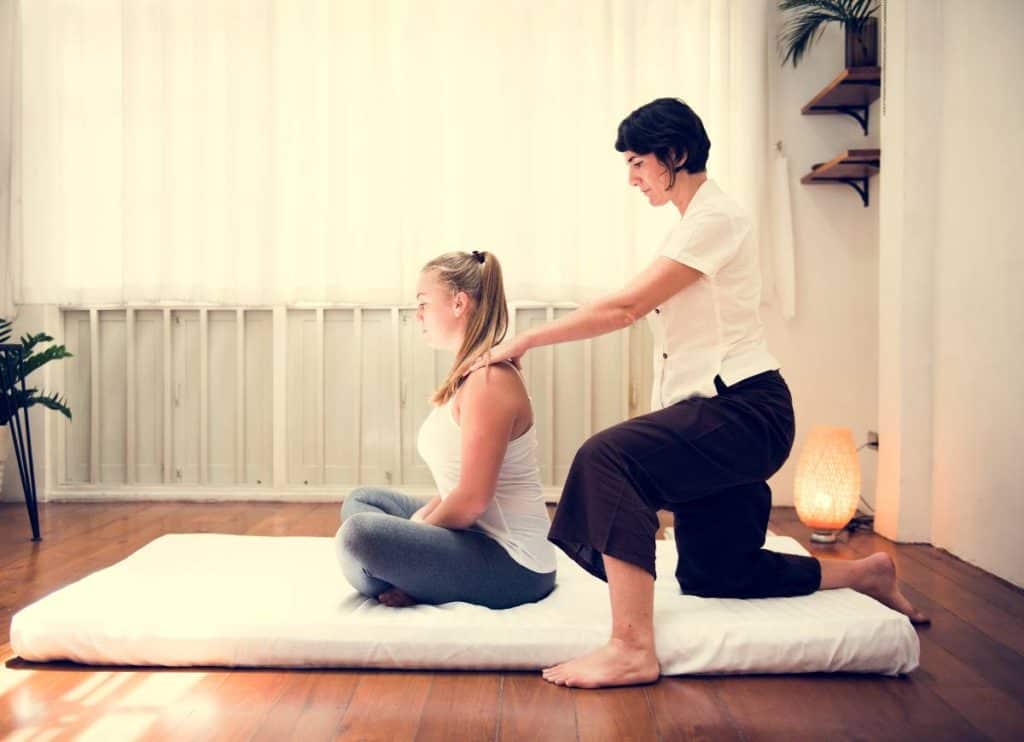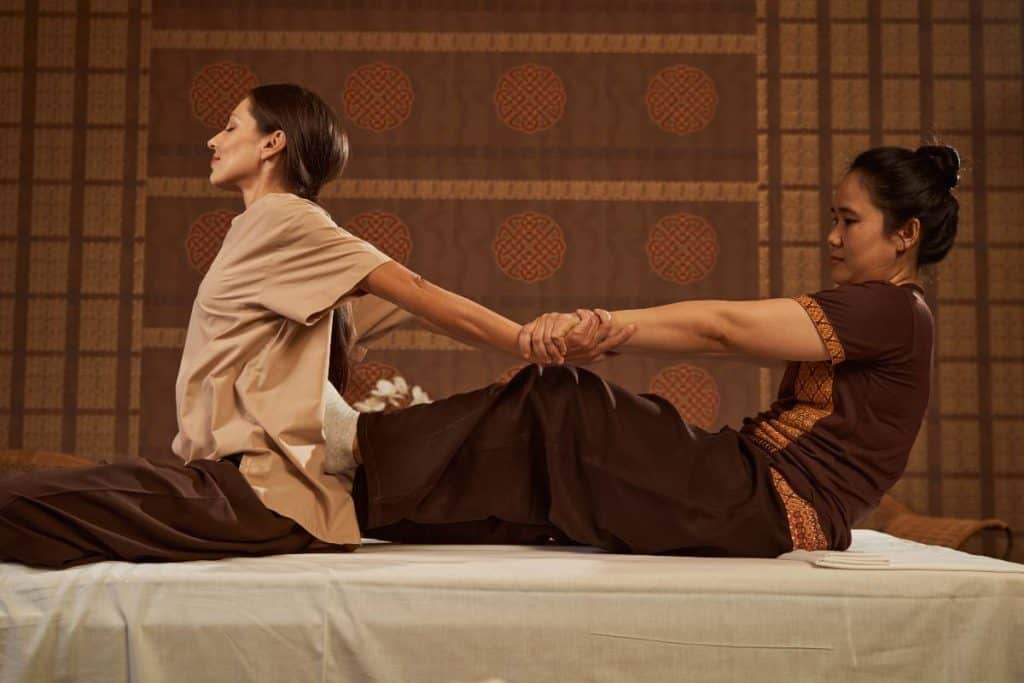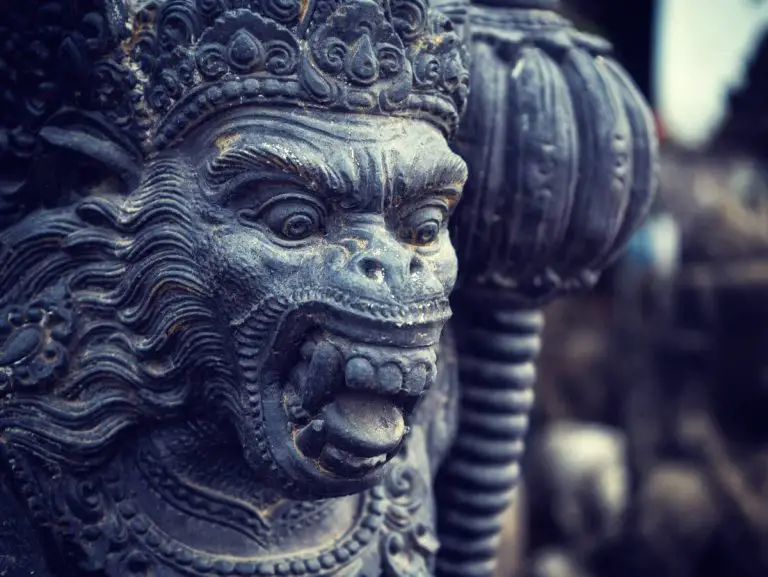Amazing Benefits Of Thai Massage For Mental Health
As an expat living in Thailand, I’ve personally witnessed the incredible power of traditional Thai massage. Beyond simply relaxing sore muscles, this unique mind-body therapy can improve various aspects of mental health – lifting your mood, easing anxiety, boosting self-esteem, and more.
What makes Thai massage uniquely beneficial for mental health compared to other massage styles? Let’s break it down as we explore how to use this ancient healing art to enhance mental well-being.
Key Takeaways
- Thai massage combines gentle stretching and applied pressure to release tension and improve overall well-being.
- Routine Thai massage can boost mood, reduce anxiety and depression, and enhance mental health.
- The technique works by activating the parasympathetic nervous system, releasing “feel good” brain chemicals, and promoting mindfulness.
A Brief History of Thai Massage
Thai massage dates back over 2,500 years to its origins in Buddhist temples. The technique integrates principles of traditional Chinese medicine, yoga, and Ayurveda. Sessions take place on a floor mat as the recipient wears loose, comfortable clothing.
The therapist uses their hands, feet, knees, and elbows to gently guide the body through various stretches and postures. This comprehensive full-body treatment opens energy pathways, boosts circulation, and releases blocked chi.
Beyond the physical realignment, Thai massage allows the mind and spirit to relax and recharge as well. Regular sessions can impart cumulative benefits for both body and mood.
Reducing Stress Hormones and Activating Parasympathetic Response
A key reason Thai massage enhances mental wellness relates to its effects on the nervous system. Techniques like rhythmic compressions and gentle rocking motions activate the parasympathetic response.
This prompts the body to downshift into a more relaxed state, slowing heart rate, lowering blood pressure, and reducing levels of the stress hormone cortisol.
As your sympathetic fight-or-flight response calms, anxiety and tension subside. Your mind clears, making it easier to achieve a meditative state of presence. This allows the cumulative effects of everyday stress to melt away.
Releasing “Feel Good” Brain Chemicals
In addition to calming nerves and muscles, Thai massage may deliver a mood boost by releasing key neurotransmitters like:
- Serotonin – elevates happiness and emotional warmth
- Dopamine – enhances enjoyment and reinforces motivation
- Endorphins – alleviate pain and produce euphoric calm
One study showed endorphin levels increased by up to 240% after a single 90-minute Thai massage!
The biomechanical pressure of the massage joins with its mindfulness component to deliver both physical relaxation and improved internal biochemistry.

Comparing Thai Massage to Other Modalities
While Swedish and deep tissue massages offer terrific tension relief, Thai massage provides added spiritual and energetic benefits. Practitioners seek to clear energy blockages and restore the balance between the mind, body, and spirit.
Thai massage draws from Indian Ayurvedic medicine concepts like energy lines, chakras, and life force. It combines acupressure with assisted yoga postures for full-scale therapeutic realignment.
Since no oils or lotions are used, the technique incorporates more emphasis on stretching vs surface tissue manipulation. The attire, mat-based setting, and interactive nature of each session further set Thai massage apart from Western methods.
Best Practices for Optimizing Mental Health Benefits
To gain the maximum positive impact on your mood and mental wellness from Thai massage, here are some best practices to follow:
- Set the intention to relax and receive healing. Let go of daily worries and be present.
- Engage in mindful breathwork during the massage to enhance parasympathetic activation.
- Communicate openly with your massage therapist regarding pressure, areas of focus, or discomfort.
- Drink water before and after to avoid dehydration and headaches.
- Avoid alcohol, caffeine, and heavy meals close to your appointment time.
- Stick to regular monthly sessions for sustained effects on mood and anxiety reduction.
Following these simple guidelines will help you extract the full benefits from each Thai massage session.
When searching for the right practitioner, read reviews and schedule an initial 15-minute meet and greet. This allows you to discuss your health history and intentions for your course of treatment. Top therapists will customize sessions based on your unique needs and sensitivities.
Integrating Thai Massage Into a Holistic Mental Health Plan
While research on Thai massage continues evolving, current studies confirm clear benefits for many facets of mental wellness.
When combined with lifestyle habits like nutritious whole-food diets, daily movement, nature immersion, and supportive relationships, the cumulative impact on mind/body health can prove substantial.
Thai massage serves as complementary medicine, not a substitute for necessary medications or talk therapy. But when incorporated into a comprehensive health regimen, it can certainly fast-track your journey to greater ease, calm, and enjoyment of life.

FAQs
Can Thai massage help conditions like depression or anxiety?
Yes, studies show that Thai massage can significantly reduce symptoms of stress, anxiety, and depression. The reductions in cortisol and increases in serotonin positively impact mood.
What effects might I expect after my first Thai massage session?
After your first treatment, expect to feel very relaxed both physically and mentally. You may experience an improved range of motion, lighter limbs, the release of key trigger points, and a sense of groundedness, and inner peace.
How does Thai massage differ from yoga?
While Thai massage incorporates certain yoga-like stretching, the therapist does all the work for you during a massage. Yoga requires active muscle engagement vs the passive movements of Thai massage.
What type of clothing should I wear for optimal comfort?
Wear lightweight, loose-fitting athletic gear that allows for a full range of movement without restrictive seams or hardware.
How long do the mental health and mood-boosting benefits from Thai massage last?
Mental clarity, emotional positivity, and reduced anxiety from Thai massage can last up to several days. Sticking to monthly massages maximizes sustained mood benefits.
I hope this overview of the major mental health benefits of traditional Thai massage inspires improving your holistic wellness plan. With routine treatments from a seasoned practitioner, you can release muscle tension, nourish your spirit, and elevate your mood.
To discuss customized sessions tailored to your needs as an expat living in Thailand, subscribe to our newsletter or contact us for questions. My team and I would love to support your health and happiness on this adventure abroad!






